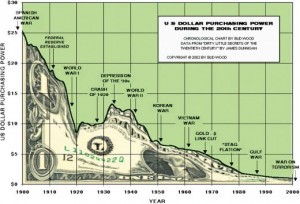May – Dollar Peaks Since 2011
In May, the dollar rose to the highest since 2011. It beat commodities, stocks and bonds to post this gain, after investors opted for US assets at a time when the debt crisis in Europe appeared to get worse. The Intercontinental Exchange, which tracks the US’ currency performance against those of six other countries that are its trading partners, released its dollar index. Based on this, the the dollar rose 5.5% in May. BoFA ‘s(Bank of America) indexes, show that the fixed income assets across the globe increased 1.1%.
Strong risk aversion drove bid for the US currency
The All-Country World Index of stocks from MSCI recorded an 8.9% loss with dividends. The total return index for agricultural products, fuel and metals of Standard and Poor dropped 13%. Camilla Sutton, Bank of Nova Scotia’s unit in Tokyo’s top currency strategist confirmed that the dollar has enjoyed a good month. The economy is in a state of strong risk aversion. This pushes funds to the US and the world’s deepest capital markets. As a result, the bid for the US dollar will be high.
GDP likely to increase globally
Globally, the GDP is likely to increase 2.5% this year, revealed median estimates charted by some of the top economists. Yields from Treasuries that are due in the next ten years dropped to 1.53%, a record low. Along side this, the 10 year yields in Spain went up to 6.7%, which was the highest since last year November. This comes at a time when the country is considering a 19 billion euro bailout of its 3rd largest bank, Bankia. Global stocks reported the biggest amount lost since last year’s September manufacturing in China and retail sales in Germany fired up speculation that there was a slowdown in growth.
State of affairs in Europe
May elections in Europe saw the political balance in the country shift when Francois Hollande, took over from Nicolas Sarkozy as the French President. Hollande, who is a socialist, challenged the austerity doctrine followed in Germany. Greece, which did not form a government following opposition from a party, is gearing up for a round of elections, which will play a key role in determining whether the country should stay in the euro.
